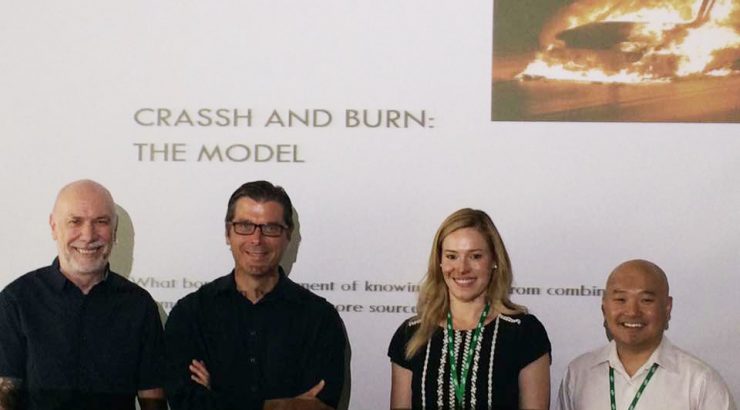
Faculty Profile: Dr. Kelli Fuery Assistant Professor in Film Studies
March 8, 2017

Dr. Kelli Fuery, Assistant Professor in Film Studies, is especially interested in film, media, cultural studies, and psychoanalytic theory. “My research has always been interested in how different theories of psychoanalysis and cultural studies can help us think about the experience of looking at or watching images, whether that is time-based–cinema, television, gaming, photography, or painting,” she says.
Dr. Fuery regularly presents her work at conferences both domestically and internationally. This summer, at a conference in the United Kingdom, she will be presenting a paper that investigates the portrayal of guilt in film and media. “Guilt,” she says, “is an emotion that holds a particularly difficult status in cinema. It is not easily shared, is resistant to representation, and challenges our capacity to link with others we do not already have an intimate relationship with.”
In addition to her own scholarly pursuits, Dr. Fuery is enthusiastic about working with students. “Working with passionate students is one of my most favorite parts of my job,” she says. In fact, Dr. Fuery has mentored several students through programs based in OURCA, the Office of Undergraduate Research and Creative Activity. Under Dr. Fuery’s mentorship, these students have received OURCA grants and participated in SURF, a paid on-campus summer fellowship that provides students with monetary support and on-campus housing. Dr. Fuery mentored Jonathan Mackris, for example, who was awarded an OURCA grant for his research project entitled “Politics and Participation in the films of William Castle.” Jared Celniker was awarded a SURF fellowship that enabled him to study repression and narcissism in Hip-Hop.

Dr. Fuery’s presentation to the full European Union Delegation on the Creative Industries grant that was awarded to Wilkinson, which she is a Co-Principal Investigator on.
Dr. Fuery believes that “research is 100% about doing what you want to do.” She recommends that students pursue a topic that is so interesting to them personally that “not [researching] it would not be an option.” For a student who has this sort of topic or idea, she recommends reaching out to a professor, connecting with others whose interests are similar, and enrolling in an independent research course, such as the 291/491/682 options provided by OURCA.
Interested in getting involved with research and/or creative activity at Chapman University? Visit OURCA’s website for more information about the various programs and grants available to Chapman University undergraduate students.